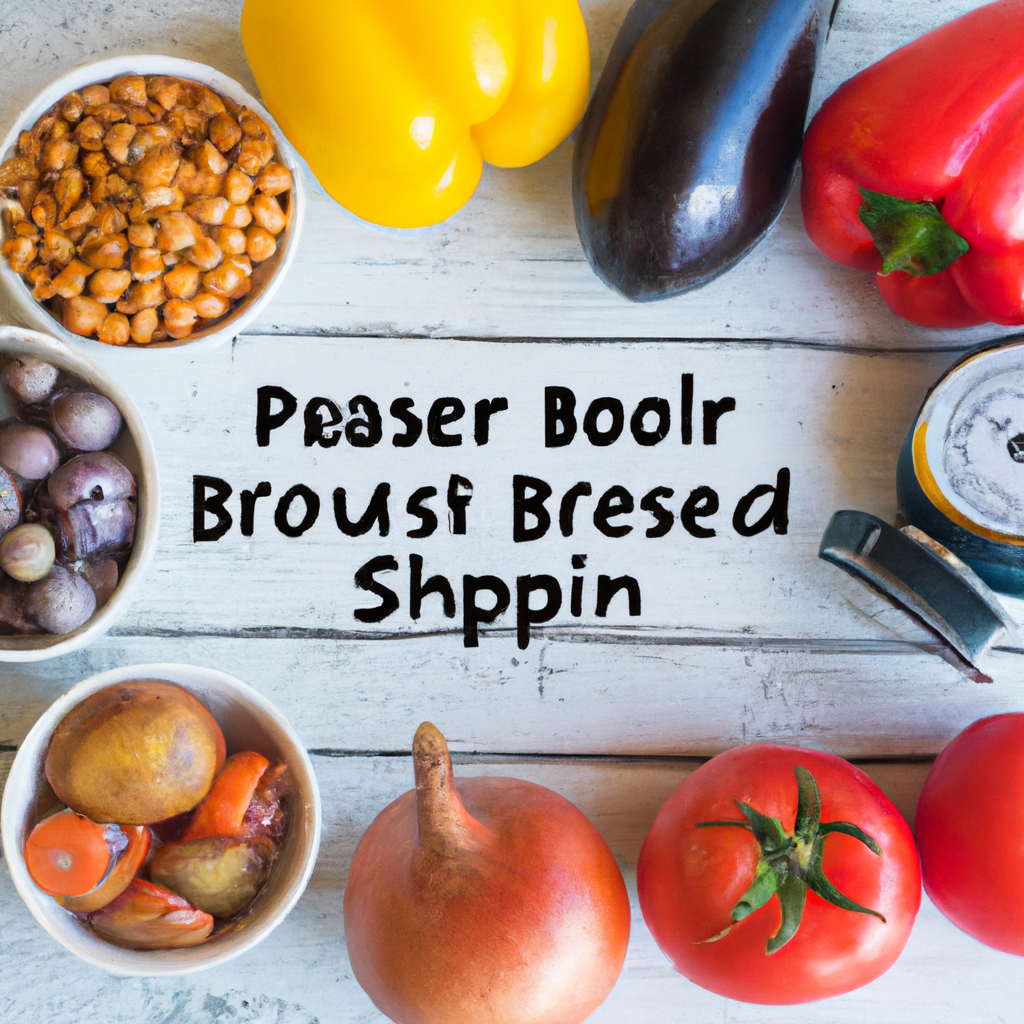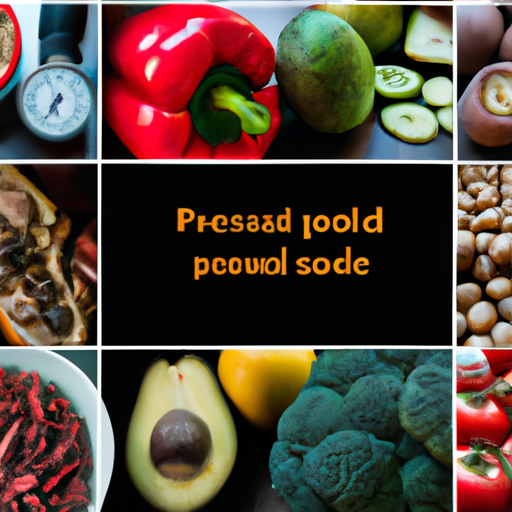Whether you’re conscious of it or not, what you put into your body on a daily basis has an enormous impact on your health. For those struggling with hypertension, or high blood pressure, the foods and drinks they consume can have an even greater impact on their blood pressure readings. Today, let’s explore which foods can help increase blood pressure so we can gain a better understanding of their impact on hypertension.
1. The Impact of High Blood Pressure on Health
High blood pressure is a major health hazard. The long-term effects of high blood pressure can increase your risk of developing some serious conditions. The most serious problem is that it can cause a stroke or a heart attack if it goes untreated.
High blood pressure can cause:
- Heart Disease: Your arteries can become damaged and weakened with long-term high blood pressure levels, leading to heart disease and other heart-related illnesses.
- Stroke: High blood pressure can also lead to damage in blood vessels in the brain, increasing the risk of stroke.
- Kidney Disease: High blood pressure can damage your kidneys, leading to life-threatening kidney failure.
- Vision Impairment: Uncontrolled high blood pressure levels can increase the risk of vision problems such as glaucoma and retinal detachment.
It is important to monitor your blood pressure levels regularly and to speak with your doctor if you are experiencing any of the above problems. Knowing the long-term effects of high blood pressure on your health is key to its prevention and treatment.
2. Identifying Foods That Can Increase Blood Pressure
Have you ever wondered what foods could make your blood pressure rise? It’s important to pay attention to the food you eat if you have hypertension—high blood pressure. Here is what you need to consider.
Salts and Sodium are usually the main suspects when it comes to consuming food that causes your blood pressure to remain high. Highly processed foods like canned soups, chips, and fast food meals contain a lot of salt and sodium. Try to steer clear of these kinds of items and make healthier choices like fresh fruits, vegetables, or grilled fish.
Foods High in Fats and Sugar can also affect your blood pressure in a negative way. Avoid food products such as:
- Baked goods like cake, pies, and pastries
- Processed meats like bacon and ham
- Fried foods such as french fries
These Choices are usually high in saturated fats that can cause your blood pressure to surge. Instead, choose healthy options such as lean protein, fresh vegetables, whole grains, and low-fat milk for your daily meals.
By making small changes, you can help your body maintain healthy blood pressure levels.
3. Mitigating the Risks of Hypertension Through Diet
If you want to lower your risk of developing hypertension, diet can be a major factor in helping you achieve this. The key to a healthy diet is eating a variety of nutritious foods in moderate amounts. Here are a few changes to make in your diet to mitigate the risk of hypertension:
- Watch your sodium intake: Limit your sodium intake to 2,300 milligrams per day or lower. Replace processed foods with whole grains, vegetables, and lean proteins.
- Increase potassium intake: Aim to get 4,700 milligrams of potassium per day. Eat more potassium-rich foods such as potatoes, bananas, spinach, yogurt, and citrus fruits.
- Reduce unhealthy fats: Limit your consumption of saturated and trans fats, found in red meats, processed foods, and full-fat dairy products.
- Eat enough fruits and vegetables: Eat a variety of whole fruits and vegetables. They’re rich in antioxidants which are essential for good health.
By making small changes in your diet you can make a big difference in mitigating the risks of hypertension. You can also consider adding physical activity to your routine and regulating your alcohol consumption in order to maintain healthy blood pressure.
4. Tips for Lowering Blood Pressure and Risk of Hypertension
Left untreated, hypertension can lead to dangerous health outcomes such as heart attack and stroke. To keep your blood pressure low and reduce your risk of hypertension, use these tips:
- Eat a balanced diet – Beet greens, fatty fish such as salmon, avocados, and nuts are great sources of good-for-you minerals and vitamins. Don’t forget to watch your sodium intake – many processed foods are loaded with extra salt!
- Get regular exercise – Cardio has many benefits, but it can also help lower your blood pressure. Aim for 150 minutes of moderate aerobic activity per week.
- Manage stress – Stress hormones can raise blood pressure. Working on your stress management skills can have a positive effect on your health.
- Check your medications – Talk to your doctor about any medications you’re taking. Some medications can increase your risk of hypertension.
In addition to making sensible lifestyle changes, it’s important to regularly monitor your blood pressure in order to detect any changes. Speak with your doctor about any steps you can take to help lower your risk of hypertension and protect your health!
Q&A
Q: What are some foods that can cause hypertension?
A: Foods high in salt, such as processed foods and take-out, are some of the most common culprits of hypertension, as studies have shown that those who consume a diet higher in salt are at an increased risk of high blood pressure. Additionally, fried and fatty foods such as processed meats, mayonnaise, butter, and creamy sauces should be avoided.
Q: What can I eat to maintain a healthy blood pressure?
A: Swap out unhealthy processed foods for a nutrient-dense, balanced diet full of fresh fruits and vegetables, whole grains, and lean proteins. Eating a healthy diet rich in magnesium and calcium can help the body to regulate its blood pressure levels. Incorporating potassium-rich foods like leafy greens, sweet potatoes, avocado, and bananas can also help to maintain balanced blood pressure. Additionally, regular exercise and getting enough sleep can help your overall health to better regulate blood pressure.
If you are looking to maintain healthy blood pressure, understanding the impact of certain foods is crucial. The most effective way to reduce your risk of hypertension is to shift your diet towards wholesome, natural, unprocessed, and plant-based foods. With the right choices, you can enjoy the deliciousness and benefits of food while enjoying a healthy and safe blood pressure.
Eating a balanced and healthy diet is essential for maintaining your overall health and well-being. But there are some foods that can be harmful if over-consumed, particularly if you suffer from hypertension, or high blood pressure. High blood pressure is a major risk factor for heart disease, stroke, and other health conditions. Understanding which foods can increase your blood pressure and limiting their consumption can help you effectively manage your hypertension.
Salt is one of the most well-known offenders when it comes to increasing your blood pressure. High levels of sodium can cause your body to retain water, increasing the volume of blood circulating throughout your body, and thus increasing your blood pressure. Cutting down on added salt and processed foods can make a world of difference for your blood pressure.
Also, keep an eye out for other hidden sodium sources, like canned soups, cured meats, and condiments. Furthermore, opting for fresh produce, unprocessed proteins, and whole grains can help you reduce your sodium intake while also supplying your body with much needed nutrients like potassium and magnesium.
It’s also important to be mindful of foods high in saturated fats, like fatty cheeses, butter, and full-fat dairy products. Too much saturated fat can stiffen and narrow your arteries, making it harder for the heart to pump blood throughout your body, leading to an increase in blood pressure. Opting for healthier fats like nuts, avocados and fatty fish can help you decrease your blood pressure without sacrificing flavor.
Finally, for those with high blood pressure, it’s important to be aware of caffeine. Caffeine can be found in many beverages like coffee, tea, and energy drinks, as well as some chocolates and sodas. Too much caffeine can cause your blood pressure to spike in the short-term, and decrease its effectiveness in the long-term.
Managing hypertension can be a complicated task, but understanding which foods can increase your blood pressure and limiting their consumption can help you take control over your hypertension. Eating a balanced and mostly unprocessed whole foods diet can help you manage your blood pressure for years to come.
